The given diagram represents a nephron and its blood supply. Study the diagram and answer the following questions:

Name the part of the nephron which lies in the renal medulla.
Step by step video & image solution for The given diagram represents a nephron and its blood supply. Study the diagram and answer the following questions: Name the part of the nephron which lies in the renal medulla. by Biology experts to help you in doubts & scoring excellent marks in Class 10 exams.
Topper's Solved these Questions
- BOOK - ICSECHAPTER - SELF ASSESSMENT PAPER 3 EXERCISE - SECTION - II59videos
SELF ASSESSMENT PAPER 3
- BOOK - ICSECHAPTER - SELF ASSESSMENT PAPER 2 EXERCISE - SECTION II 7. (b)5videos
SELF ASSESSMENT PAPER 2
- BOOK - ICSECHAPTER - SELF ASSESSMENT PAPER 4EXERCISE - SECTION - II57videos
SELF ASSESSMENT PAPER 4
Similar Questions
The given diagram represents a nephron and its blood supply. Study the diagram and answer the question :
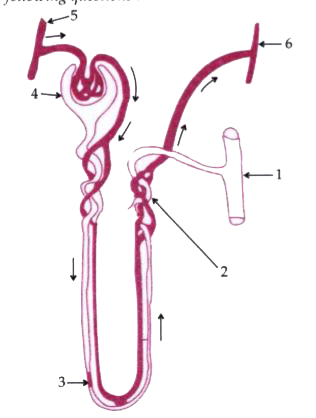
Name the part of the nephron which lies in the renal medulla.View SolutionThe given diagram represents a nephron and its blood supply. Study the diagram and answer the question :
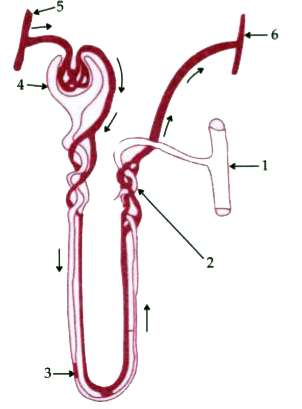
Label parts 1, 2, 3 and 4.View SolutionThe given diagram represents a nephron and its blood supply. Study the diagram and answer the question :
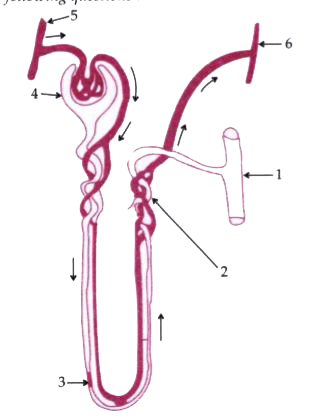
State the reason for the high hydrostatic pressure in the glomerulus.View SolutionThe given diagram represents a nephron and its blood supply. Study the diagram and answer the question :
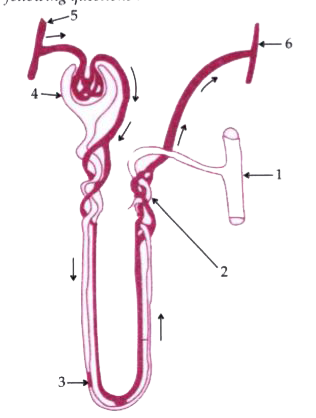
Name the blood vessel which contains the least amount of urea in this diagram.View SolutionStudy the diagram and answer the questions that follow :
Label the parts 1 - 4View SolutionStudy the diagram and answer the questions that follow :
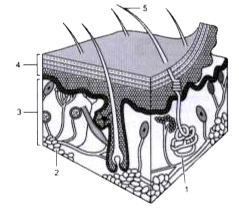
Label the parts 1-5View SolutionStudy the diagram and answer the questions that follow :
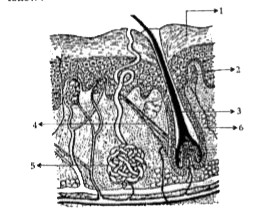
Label the parts 1 - 4.View SolutionStudy the diagram and answer the questions that follow :

Label the parts 1 - 4.View SolutionStudy the diagram and answer the questions that follow:
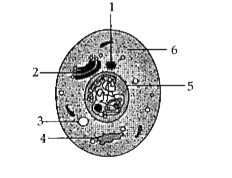
Label the parts 1 - 4.View SolutionThe diagram given belwo represents a system in the human body. Study the diagram and answer the following question:
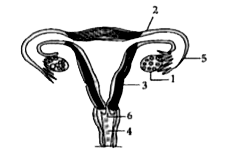
Label the parts marked 5 and 6.View Solution

